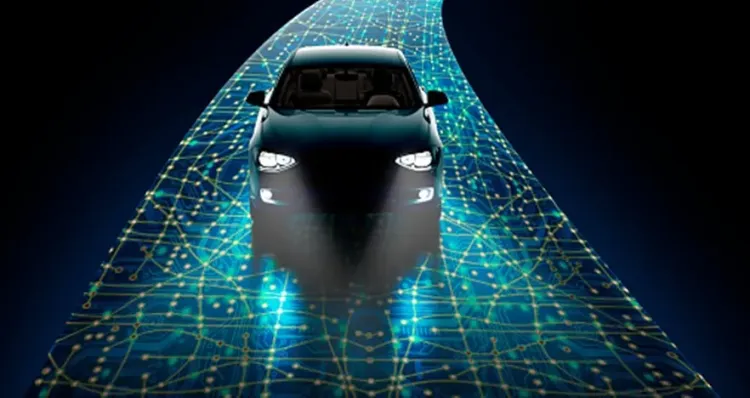Why is Cybersecurity Essential in the Era of Software-Defined Vehicles?

Synopsis
Key Takeaways
- Cybersecurity is vital as vehicles become more connected.
- Software-defined vehicles are more vulnerable to cyberattacks.
- Data breaches pose significant risks for drivers.
- Regulations are evolving to enforce cybersecurity measures.
- Manufacturers must prioritize cybersecurity in vehicle design.
Seoul, May 23 (NationPress) Cybersecurity is rapidly becoming a critical consideration for automobile manufacturers as the global automotive sector transitions towards increasingly connected and software-defined vehicles, according to an executive from a South Korean automotive cybersecurity solutions firm.
"We are entering the era of software-defined vehicles, which introduces numerous interfaces linking vehicles to their external environments, thereby increasing their susceptibility to cyberattacks," stated Lee Joo-hwa, head of Autocrypt's European division, during the 2025 International Transport Forum Summit in Leipzig, Germany.
"This shift also elevates the risk of data breaches in software-defined vehicles (SDVs), which handle significantly larger volumes of data compared to traditional hardware-defined vehicles," she added.
SDVs are defined as next-generation vehicles where software plays a pivotal role in their control, management, and functionality enhancements, including autonomous vehicles.
Lee emphasized that cybersecurity within the future mobility sector is crucial for the safety and well-being of drivers, as well as for the safeguarding of their personal information.
"Consider the implications if an issue arises in signals, communications, or data within vehicles due to a cybersecurity breach, potentially preventing cars from stopping when necessary. Such a scenario could directly result in accidents," she explained.
"Moreover, as vehicles store substantial amounts of driver information, they are at risk of easy data leaks," she noted.
Established in 2019, Autocrypt has been delivering cybersecurity solutions to over 20 global automobile manufacturers, including South Korea's leading Hyundai Motor Group, as well as international giants like Audi and General Motors, alongside approximately 40% of major global auto parts suppliers.
Lee remarked that major economies are progressing toward legislation that mandates automobile manufacturers to integrate cybersecurity features into their products.
In July of the previous year, the European Union enacted new regulations requiring the obligatory installation of cybersecurity management systems for all new vehicles sold within the region.
Similarly, South Korea is set to introduce comparable regulations to enhance vehicle cybersecurity in August under the revised Motor Vehicle Management Act, with India also planning to implement such regulations by 2027.
"Ultimately, it is up to the original manufacturers to determine the extent to which they will embed cybersecurity solutions in their vehicles," she stated.
Lee highlighted that cyberattack incidents targeting vehicles occur annually, underscoring the necessity for enhanced cybersecurity protocols in the mobility sector.
A report from U.S.-based data security firm Upstream Security revealed that in 2024, researchers identified 108 mobility-specific ransomware attacks and 214 data breaches worldwide, significantly contributing to the surge in cybersecurity incidents within the mobility landscape.








